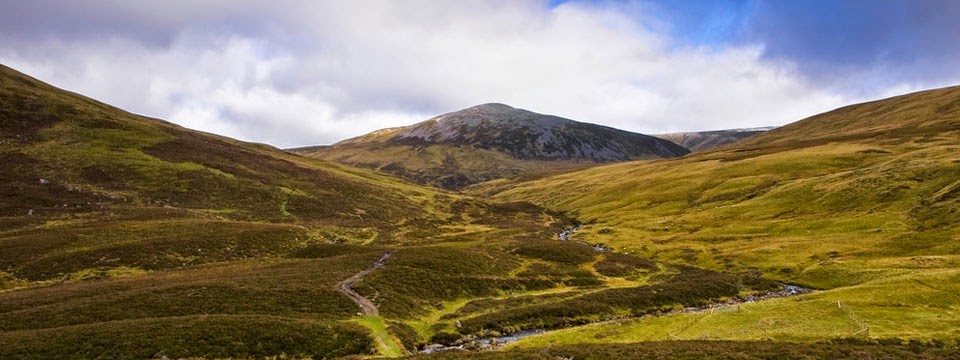 |
| The Cairngorms |
This polemic is not about North Sea oil, it’s not about the
economics of small countries, it isn’t even about the complex formula contested
on all sides about how much Westminster does or doesn’t send north of the
English border. But it is about how I
feel incredibly passionately that the United Kingdom is so so much stronger as
just that – a Union.
It is in opposition to the alternative of splintered
mediocre states of obvious global insignificance that we would inevitably
become.
Do some of my Scots brethren choose to forget how interwoven
our two cultures actually are? Do the
almost hysterical arguments of the nationalists convince the level-headed man
on the Gaelic street that (s)he is better off jettisoning the bonds that
invisibly yet intrinsically give us a common history?
I wonder. And I
think: not.
Glancing ever so briefly back in history, as Elizabeth I was
in the final agonising throes of death, the courtly gentry of England &
Wales construed to have the “next” male in line plonked on the throne of a combined
pre-emptory Union. It was thus (and not
via any bloody conquest) that the seminal Great Britain was born. (Granted, it took a couple of hundred years
more to formalise the whole thing, but the seed was sewn.)
.svg.png) |
| The Flag of England, Wales, Scotland - Great Britain |
And then James VI of Scotland strode southwards
simultaneously as James I of England (and presumably Wales – although we don’t
hear that said often).
We have for the ensuing 400+ years inter-married, exchanged
customs, grown to love and hate almost everything that binds us and separates
us. Our shared and joint monarch seems happier
in tartan on the highlands hunting hinds than in a designer frock on a
Thames-barge to celebrate her 60 years on the throne.
There is a palpable obsession with our good James VI’s
mother – Mary Queen of Scots and the murderous decapitation authorised by
Elizabeth I (but oft ignored, supported and possibly carried out by her
son). She was Roman Catholic to her
dying head-placing on the block and today Scotland is a paragon of Protestant
frugality. This impressive lady I
suspect would have obliged Scotland and the Scots to follow the faith of Rome
and imposed it on England also. The
irony is that a free-thinking religion is now a factor (albeit in a secular
context) one of the propellants of the independence debates – and had Mary
demurred, we may be more oppressed, more unified, more obliging.
But I digress.
A good friend recently pointed out, the contrapuntal nature
of this whole debate seems illogical.
And when one thinks about the centrifugal forces that are bringing
nations, states, entities together, it is hard not to ponder the point of
resisting and insisting on repulsion.
 |
| Design for the Union flag without the Scottish saltire. |
The EU, ASEAN, the AU, SADAC, ECOWAS, EAC, NAFTA, NATO, EFTA,
APEC and the list goes on. The world is
getting more interwoven, more combined, more unified and here, now, we have a
debate renting our wondrous isles apart.
Some compare this to the separation of Czechoslovakia or the
crumbling of Yugoslavia – but this is not the same. They were artificial constructs post WWI – more
akin to Iraq, Libya and Turkey (with due respect) than Scotland.
Small is beautiful it is said – and indeed it is, and if
anyone dares to think that the UK is big is kidding themselves – we’re already
a tiny piece of historical snot confined to the Elgar-playing drum-beating
nay-sayers of history. Our influence is
fading, our voice is diminished and our veto will not last much longer. If Scotland were to secede it would not only
create a new state with virtually no say in the world, but impoverish what the
Union has left in it.
And don’t misunderstand my apparent hankerings for colonial
glory – this is not what I desire or seek.
But the UK does have a duty and responsibility to help re-shape the
global landscape that it has in the last hundred or so years been instrumental
in designing – rightly or wrongly.
It’s the small things that perhaps, now mere days from the referendum,
seem so important; tea-drinking, scones – dropped or not; battling against the
rain – even when it’s August; driving on the left; the pound – whether it’s
printed by the Bank of England or Clydesdale Bank; a good post-binge
sphincter-crunching curry; and a delight in actually not being contiguously
joined to the mainland of Europe.
Is it because two great-grandfathers were Scottish, is it
because I love a ceilidh (despite not being able to spell it without
spell-check), is it because deep down I love an eye-watering yellow and pink
tartan?
Perhaps it’s all of that and perhaps none of it.
What I do know is that I want the Union to continue; I want
to be proud of the Union Flag; I want my country to over-shoot in its world
importance and influence – and we can do that only with Scotland.
We are indeed stronger
together.




.svg.png)


.jpg)





.jpg)